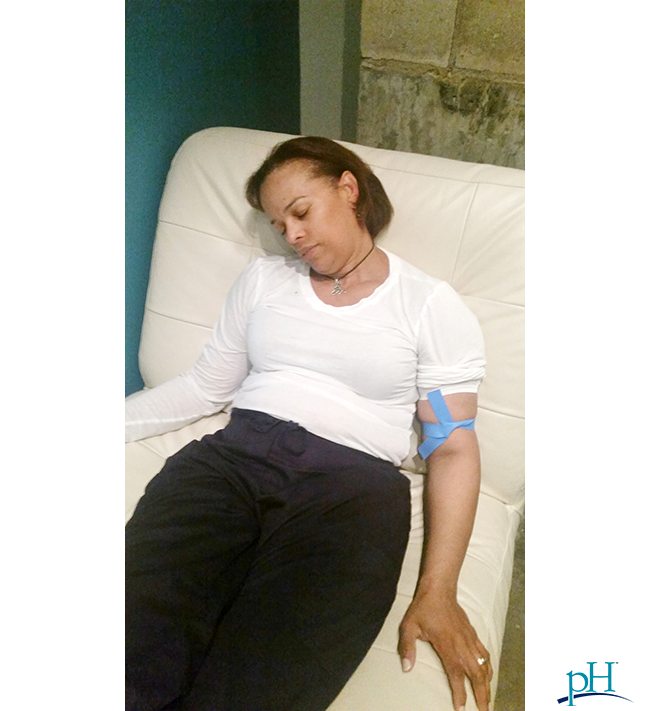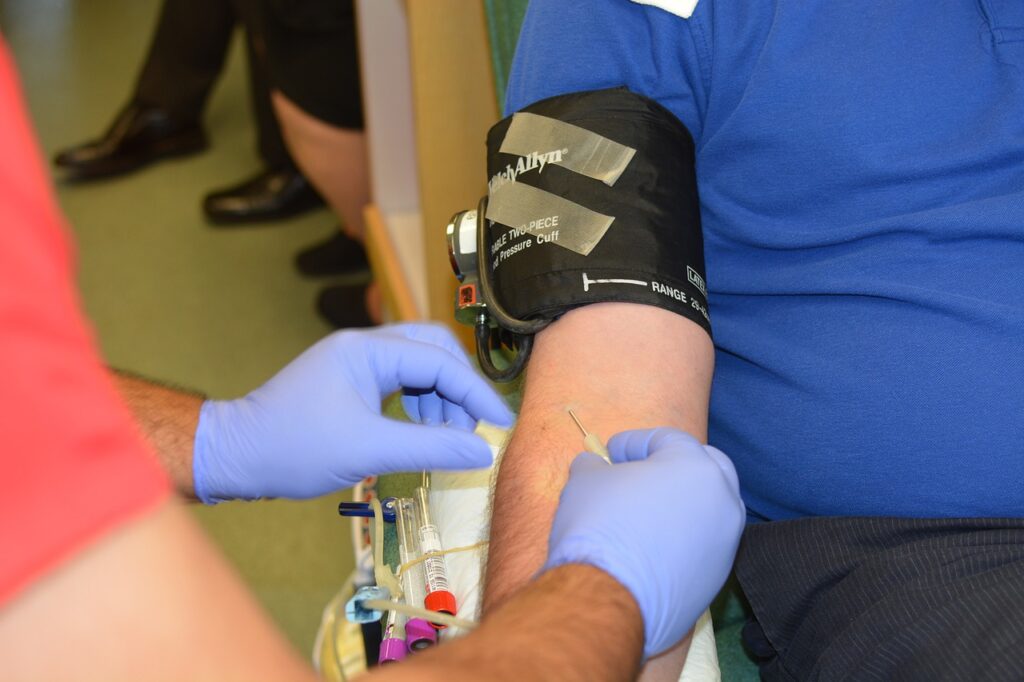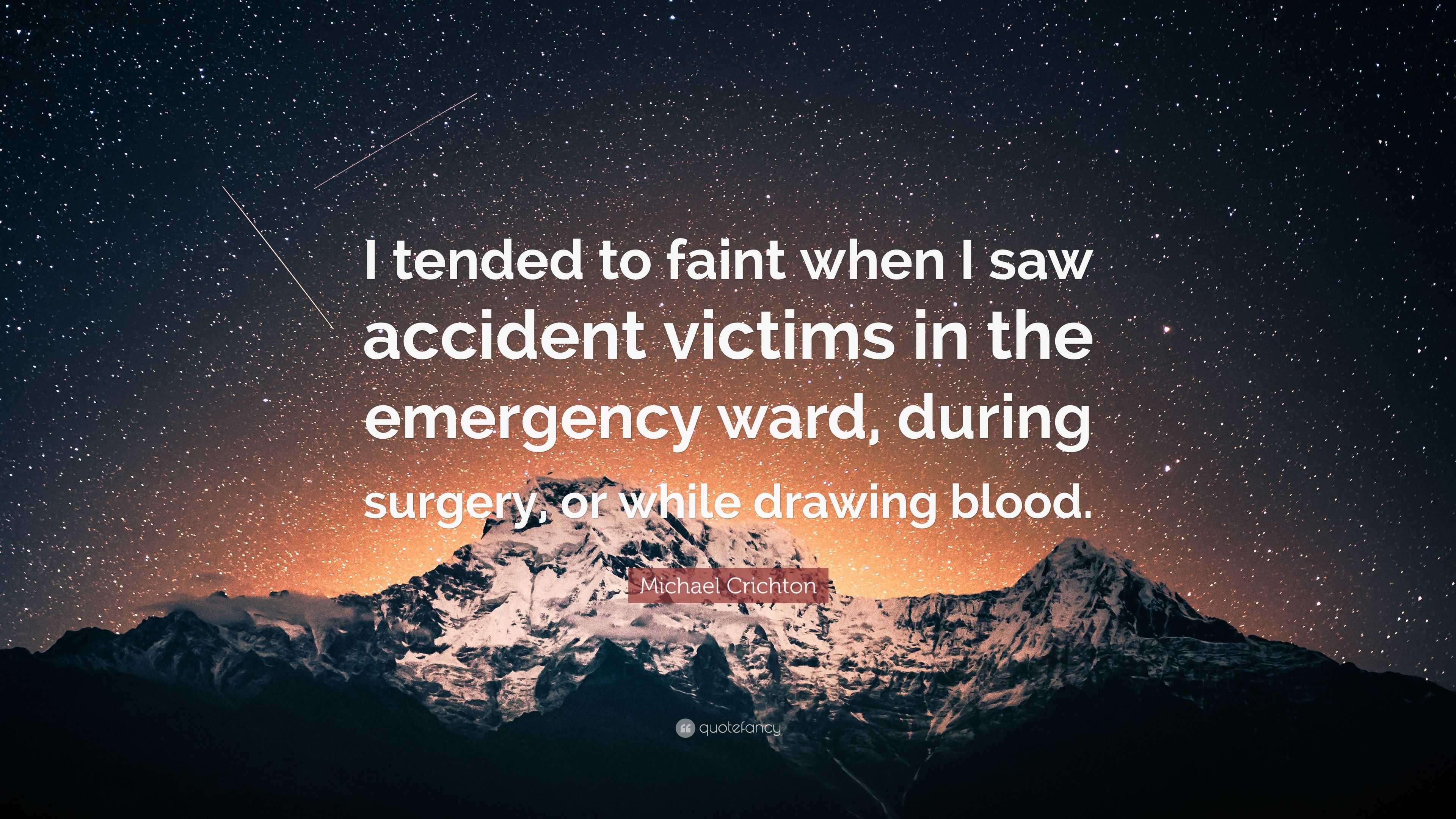Fainting While Drawing Blood
Fainting While Drawing Blood - Web published on january 16, 2024. Web by mayo clinic staff. But how does vasovagal syncope affect people giving blood. Web if you have fainted at a blood draw before, you should ask to do your next blood draw lying down. Fainting occurs when the brain doesn't receive enough blood for a brief time. Fainting might have no medical significance. Web vasovagal syncope is a type of fainting that happens when your nervous system reacts to a painful or stressful trigger. This causes loss of consciousness. The brain’s response to stress can cause blood vessels to dilate, reducing blood pressure and potentially causing a person to faint. It refers to a relatively sudden loss of consciousness, followed by a spontaneous rapid and complete recovery. For some, it may be scary enough to cause them to pass out. As a phlebotomist in nevada, you may encounter a patient who faints during a blood draw. Fainting (syncope) is a sudden, brief loss of consciousness during which the person falls to the ground or slumps in a chair followed. Being prepared for this situation and knowing how. Some people have a severe reaction to blood draws including fainting. In fact, millions of people faint each year—and the most common reason is vasovagal syncope. Getting a vaccine or having their blood drawn can be uncomfortable or nerve wracking. But how does vasovagal syncope affect people giving blood. Fainting occurs when the brain doesn't receive enough blood for a. The chapter includes background information (section 2.1), practical guidance (section 2.2) and illustrations. Getting a vaccine or having their blood drawn can be uncomfortable or nerve wracking. Try not to skip meals. Other common causes of fainting include standing for a long period of time and exposure to heat or crowds or both. Consciousness is usually regained quickly. It refers to a relatively sudden loss of consciousness, followed by a spontaneous rapid and complete recovery. This causes loss of consciousness. While most aspects of modern. Also known as a vasovagal response or vasovagal syncope, this cause of fainting is common in children and young adults. Web published on january 16, 2024. If a patient faints during the blood collection immediately abort the procedure: Here are some tips to avoid fainting during a blood draw. Web vasovagal syncope is a type of fainting that happens when your nervous system reacts to a painful or stressful trigger. Web this chapter covers all the steps recommended for safe phlebotomy and reiterates the accepted principles. Other common causes of fainting include standing for a long period of time and exposure to heat or crowds or both. The brain’s response to stress can cause blood vessels to dilate, reducing blood pressure and potentially causing a person to faint. But how does vasovagal syncope affect people giving blood. Getting a vaccine or having their blood drawn can. Web feeling anxious or fearful about the procedure is a common reason for fainting during blood draws. It refers to a relatively sudden loss of consciousness, followed by a spontaneous rapid and complete recovery. Avoid standing for prolonged periods. Web the most common cause for fainting during blood draw is neurally mediated syncope. Web we have all heard of people. Try not to skip meals. The chapter includes background information (section 2.1), practical guidance (section 2.2) and illustrations. Fainting (syncope) is a sudden, brief loss of consciousness during which the person falls to the ground or slumps in a chair followed. Web some people faint in response to the sight of blood or to an emotional upset. For most people,. Web published on january 16, 2024. This causes loss of consciousness. Vasovagal syncope is almost always triggered by something happening to you or around you. Start by finding a comfortable position on the chair or bed so that you can. Consciousness is usually regained quickly. Vasovagal syncope is almost always triggered by something happening to you or around you. In fact, millions of people faint each year—and the most common reason is vasovagal syncope. Or the cause can be a. Here are some tips to avoid fainting during a blood draw. While most aspects of modern. Someone is considered to have syncope if they become unconscious and go limp, then soon recover. Fainting (syncope) is a sudden, brief loss of consciousness during which the person falls to the ground or slumps in a chair followed. Web by mayo clinic staff. Fainting might have no medical significance. Web feeling anxious or fearful about the procedure is a common reason for fainting during blood draws. Read more about how it can help you. Try not to skip meals. Essentials for older people |. In fact, millions of people faint each year—and the most common reason is vasovagal syncope. Web this chapter covers all the steps recommended for safe phlebotomy and reiterates the accepted principles for blood drawing and blood collection (31). Some people have a severe reaction to blood draws including fainting. But how does vasovagal syncope affect people giving blood. As a phlebotomist in nevada, you may encounter a patient who faints during a blood draw. It refers to a relatively sudden loss of consciousness, followed by a spontaneous rapid and complete recovery. Getting a vaccine or having their blood drawn can be uncomfortable or nerve wracking. While most aspects of modern.
Why did you pass out during the blood draw?

Fainting After Giving Blood Causes and Coping Methods New Health Advisor

Applied Tension Technique For People Who Faint at the Sight of Blood
:max_bytes(150000):strip_icc()/tips-for-making-a-blood-draw-easier-3156931-a1efe64eb50b4ca3b489144274854bf0.png)
7 Tipps zur Erleichterung der Blutentnahme

Phlebotomy Tips How to Help a Fainting Patient During a Blood Draw

What to do if Faint after Blood Draw Healths Digest

Phlebotomy Tips How to Help a Fainting Patient During a Blood Draw

Michael Crichton Quote “I tended to faint when I saw accident victims

Miranda's blood test! YouTube

Getting Your Blood Drawn What You Need to Know One Medical
You Can Also Reduce Your Likelihood Of Fainting By Doing The Following:
The Chapter Includes Background Information (Section 2.1), Practical Guidance (Section 2.2) And Illustrations.
The Brain’s Response To Stress Can Cause Blood Vessels To Dilate, Reducing Blood Pressure And Potentially Causing A Person To Faint.
For Most People, Syncope Occurs Once In A Great While, If.
Related Post: